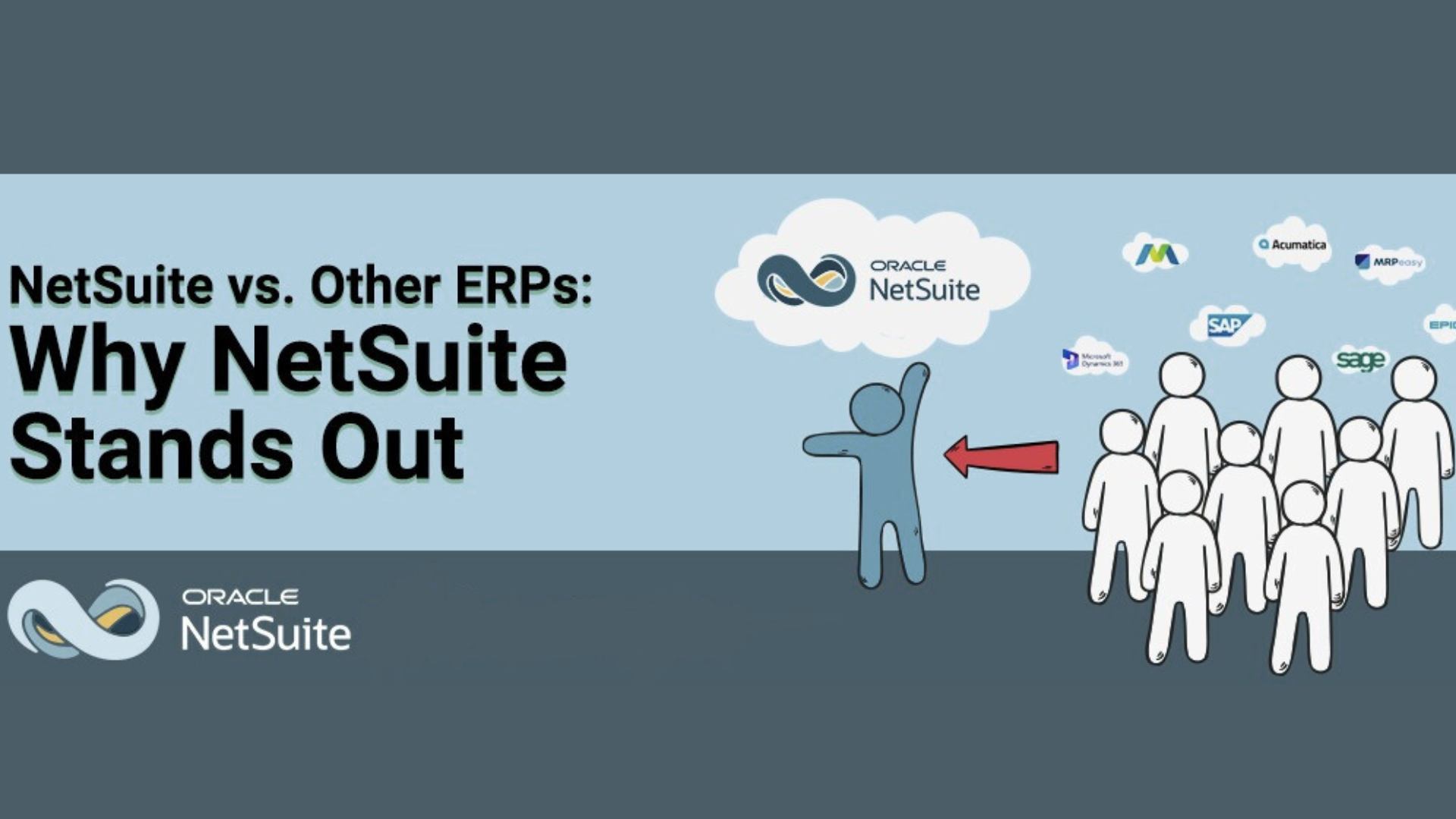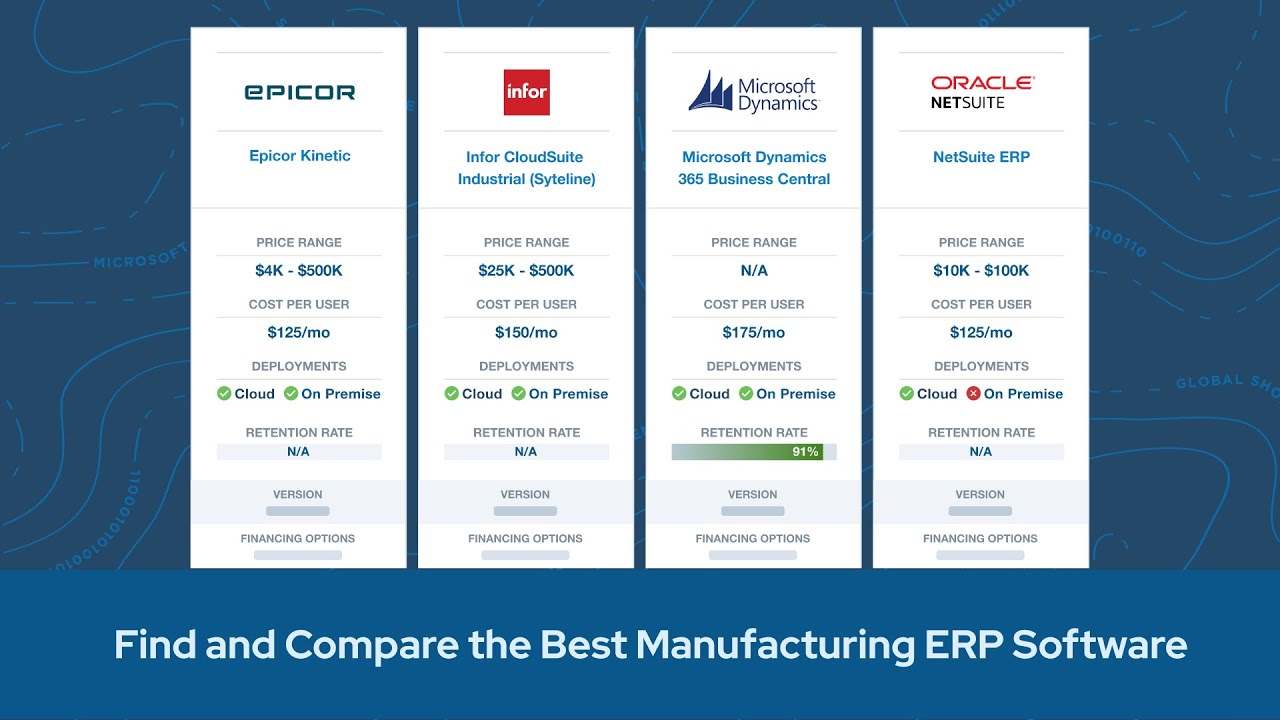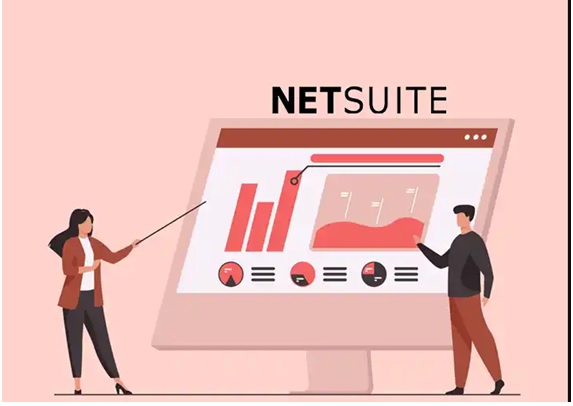
NetSuite vs. Other ERPs: Which One is Right for You?
Choosing the right ERP (Enterprise Resource Planning) software can be one of the most impactful decisions for your business. The right system can streamline operations, improve visibility, and enable smarter decision-making. But with so many ERP options out there—SAP, Microsoft Dynamics, Oracle Fusion, QuickBooks Enterprise, and more—it’s easy to feel overwhelmed.
So where does NetSuite stand? And how does it compare to other ERPs on the market?
Let’s break it down.
What Is NetSuite?
NetSuite, a product of Oracle, is a cloud-native ERP designed to support the entire business lifecycle—from accounting and inventory to CRM, ecommerce, and beyond. With real-time dashboards and built-in scalability, it’s built for modern businesses looking to grow without operational roadblocks.
What Sets NetSuite Apart?
1. True Cloud ERP
NetSuite was born in the cloud, meaning it's designed from the ground up for online, real-time access. Many other ERPs, like SAP or Microsoft Dynamics, began as on-premise solutions and were later adapted to the cloud—sometimes resulting in limited flexibility or hybrid models that can complicate deployment.
2. All-in-One Solution
Unlike many ERP competitors that require third-party integrations for CRM, ecommerce, or project management, NetSuite delivers a unified suite in a single platform. This eliminates data silos and ensures smooth workflows across finance, sales, inventory, HR, and more.
3. Rapid Deployment
With industry-specific modules and pre-configured implementation options (SuiteSuccess), NetSuite can be up and running much faster than traditional ERPs. Customization is still possible, but you're not starting from scratch.
How Does NetSuite Compare to Other Popular ERPs?
NetSuite vs. SAP Business One
1. SAP Strengths: Strong in manufacturing and complex enterprise environments.
2. NetSuite Advantage: More agile, modern cloud infrastructure; better suited for mid-market and fast-scaling businesses.
Netsuite vs. Microsoft Dynamics 365
1. Dynamics Strengths: Familiar interface for Microsoft users; strong ecosystem.
2. NetSuite Advantage: Unified system with fewer integration headaches; purpose-built dashboards and automation features out of the box.
NetSuite vs. QuickBooks Enterprise
1. QuickBooks Strengths: Great for small businesses and basic accounting.
2. NetSuite Advantage: Designed for scale—multi-entity support, advanced financials, and full ERP capabilities make NetSuite ideal for growing companies.
NetSuite vs. Oracle Fusion Cloud
1. Oracle Fusion Strengths: Enterprise-grade power, deep HR and supply chain tools.
2. NetSuite Advantage: Lighter, faster, and more cost-effective for mid-sized companies; easier to deploy and manage.
When Is NetSuite the Right Fit?
Choose NetSuite if:
1. You want a true cloud ERP with remote access.
2. You need a single system for financials, CRM, inventory, and ecommerce.
3. You’re scaling quickly and need multi-entity, multi-currency, or international capabilities.
4. You want real-time reporting and dashboards without building from scratch.
5. You’re looking for rapid deployment and minimal reliance on IT.
Final Thoughts
There’s no one-size-fits-all ERP. But if you’re a growing, forward-looking business that needs flexibility, scalability, and visibility—all in one cloud platform—NetSuite is a standout contender.
It’s more than just accounting software. It’s a smart investment in your company’s infrastructure, growth, and future.



